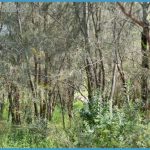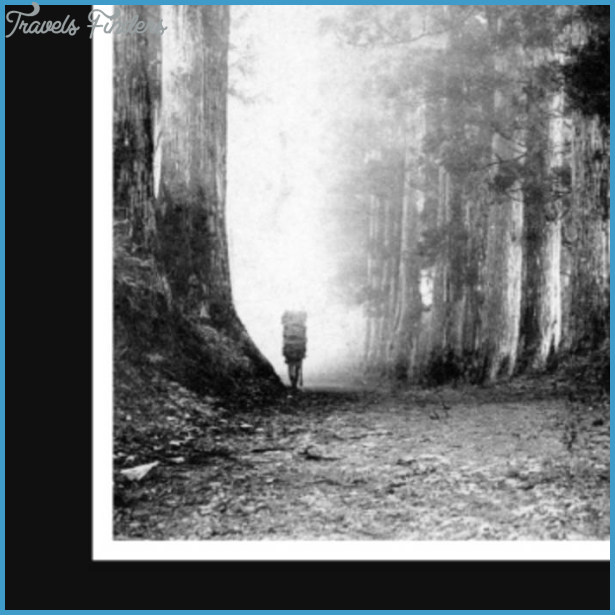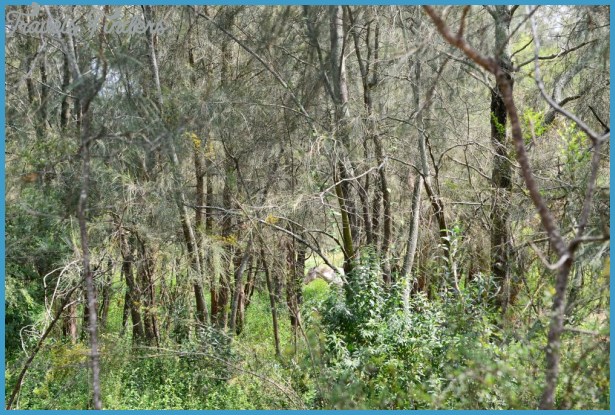It was my first night in the tent and I had slept surprisingly well although that might have been the result of a two-day journey to get to this particularly isolated forest in central Kenya. It was early morning, still dark at around 5 a.m. when I woke up all too suddenly. Some incredibly loud, almost blood-curdling screaming quite close to our campsite had roused me, a noise I was soon to get to know each and every pre-dawn morning I was there. And it always sounded as if some animal or other was dying in utter agony, maybe in the jaws of a leopard.
I peered out of my tent. In the shards of distant light appearing through the trees I could see our Samburu campsite helpers moving about, completely unperturbed. Whatever the screaming was, no one paid any attention. Relax, I thought, it’s got to be an everyday occurrence that needn’t worry me, however horrific it sounded. Later that morning I asked Lentaaya, our Dorobo camp supervisor, what the early morning screams were.
The Forest Thats Fading Away Photo Gallery
‘Oh that,’ he said nonchalantly, That’s the African Fish Eagles howling to each other in the trees by the river. They do it every morning at dawn.’ The Ngeng River, a few metres down-slope from us here in the Mathews Forest, was hardly a river, more a series of small rivulets, so poor had the rainy season been. Nevertheless, the Fish Eagles were up and about early, keen on the first catch of the day no doubt. And I did see a surprisingly large number of fish of all sizes in those rivulets in which I washed over the next ten days of my stay.
I had joined Luca Borghesio, an Italian biologist researching changes in the biodiversity of this forest. With us we had two extremely pleasant young Kenyan research ornithologists from the Nairobi Museum – Lawrence Wagura and Samuel Bakari – plus four local Samburu as cooks and camp helpers. Two of the Samburu were employed as guards and were armed with ancient rifles that reminded me of the Lee-Enfields from the Boer War. Why did we need armed guards? Simply because it was possible that we might disturb some Wild Oxen or other large animals snoozing in some shade or encounter an elephant with young at close quarters. Firing a warning shot would deter a charge, though how rapidly our guards could load and fire I had no idea.
Getting out of the tent at night, unless it was a real emergency, was not something to be contemplated Luca had told me. His instructions had been very clear. Do not venture out of your tent at night, not for a call of nature or anything. Do what you have to do but inside your tent. So you will need a small receptacle,’ he warned, his Italian accent inflecting his words. If you walk outside the tent at night you take a big risk; you would never hear the lion that comes up behind you in silence. They are huge animals, very powerful. The first thing you know – but not for very long – is that the lion is on your back with its jaw into your neck.’ A tent-bound, night-time pee into a plastic bottle suddenly seemed a minor sacrifice.
He also mentioned daytime toilet habits and I recount them here merely for completion before I move on to other topics! Do not be at all surprised if, when you have finished what you do and you have yet to cover it with some soil,’ he said, a couple of Samburu moran [their young warriors’] arrive to look at what you have produced. You will not hear them coming [rather like a night-time lion]; they are very silent. But do not be alarmed. They will be very serious. They are not being rude. They will discuss its colour and consistency; they might poke at it with a stick and decide if you are a healthy person or not. That is quite normal in Samburu society.’ I couldn’t help but think of those scenes in the film, The Madness of King George when George III’s faeces were examined in minute detail by his physicians trying to grasp what was wrong with him and how he might be treated. Seemingly Kenya’s Samburu were still at it. I’m not sure I found it reassuring.






















